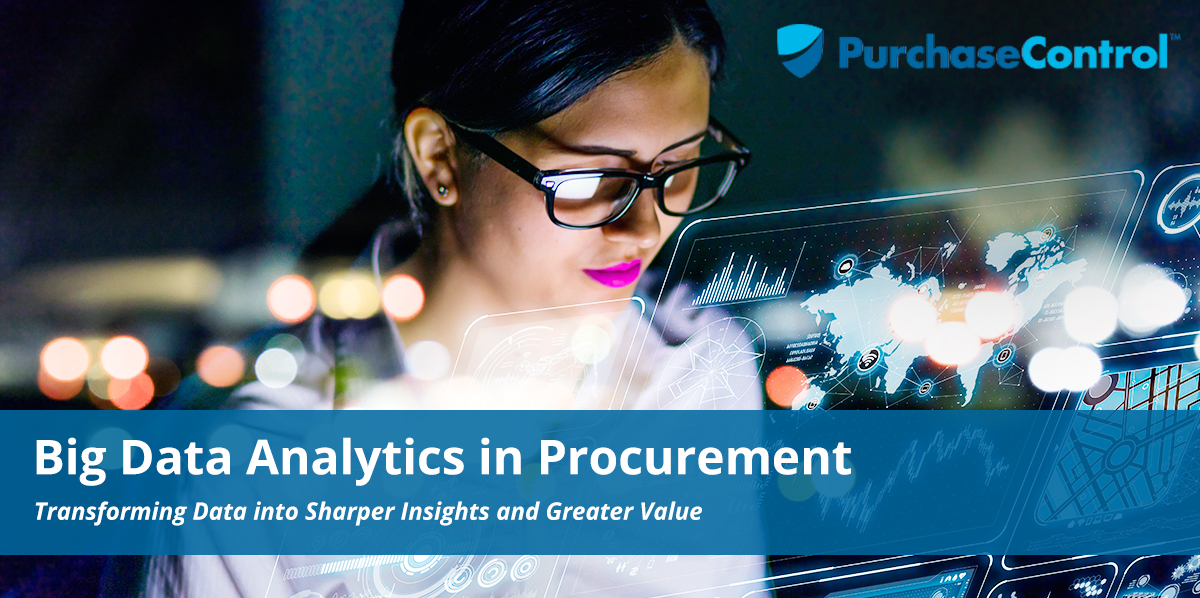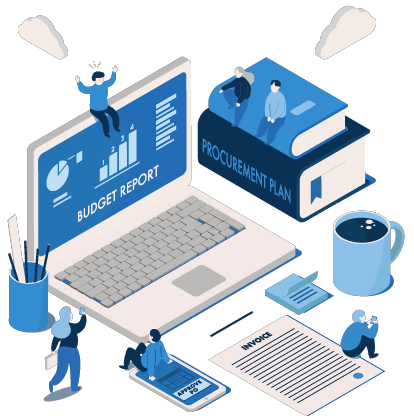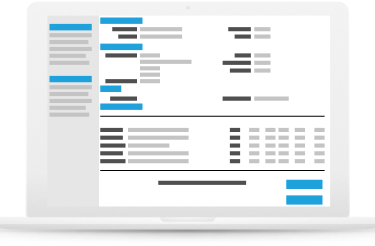Quick: What’s your company’s biggest product? The answer’s probably not on the manufacturing floor or in the service department. Whether you’re a manufacturer, reseller, or service company, it’s information that’s being produced in massive quantities. Every one of your transactions, and all the activity related to them, generates a trove of Big Data you can mine for insights—insights you can (and should) use to optimize everything from approval workflows to strategic sourcing to long-term financial planning.
For procurement organizations around the globe, the challenge has become finding ways to successfully leverage big data analytics to improve decision making. With help from technology, procurement leaders are moving procurement toward a data-centric approach in pursuit of not just cost savings, but greater value from procurement processes while reducing risk, strengthening supplier relationships, and enhancing competitive advantage.
Why Big Data Analytics in Procurement Matter
The “big” in “Big Data” refers to both the depth and breadth of information available for analysis. This data is both unstructured and structured, and comes from both internal and external sources:
Internal Data covers the information generated, collected, and organized “in house” by an organization. This can include:
- Transactional data (which may also draw on related information provided by connected accounting or enterprise resource planning (ERP) packages)
- Supplier-side data
- Financial information collected locally from financial records (e.g., the general ledger) or spreadsheets and databases provided by business units outside procurement and accounting (e.g. marketing, sales, etc.)
External Data, as the name implies, comes from outside the organization. Sources include:
- Social media content and other publicly available information (e.g., Facebook, LinkedIn, Twitter, etc.)
- Stock market and currency information
- Data provided by vendors
- Market intelligence
- Industry-specific information, such as credit reports, market indices, and supplier codes
Sifting through all of this information to find the insights you’re looking for requires the use of Big Data analytics—one of many procurement analytics tools growing in importance as more and more chief procurement officers (CPOs) and the procurement teams they lead come to rely on data analytics to help guide decision making and development of efficient and accurate procurement processes.
As these tools become more intuitive and ubiquitous, analysis is no longer solely the domain of data scientists, but a tool accessible to category managers, decision makers, and other key members of the procurement function. Digital procurement depends on data analysis to drive better decisions, simplify supply chain management, and, ultimately, push the organization as a whole to greater levels of success.
Choosing a cloud-based, comprehensive eProcurement software package like PurchaseControl gives procurement teams access to both advanced Big Data analytics and the AI and automation tools they need to put the insights they uncover to good use.
“Spend analysis is the the backbone of traditional approaches to procurement analytics—even in the era of manual processes and paper-based workflows, effective spend management was of paramount importance to achieving cost savings—but Big Data analysis taps into the power of tools like artificial intelligence and process automation to exploit the true potential of diverse data sources.”
How Big Data Analytics Can Improve Procurement
While the name might conjure images of countless workers bent over massive spreadsheets with magnifying glasses, Big Data analytics is more likely to rely on software than squadrons of squinting staff. Spend analysis is the backbone of traditional approaches to procurement analytics—even in the era of manual processes and paper-based workflows, effective spend management was of paramount importance to achieving cost savings—but Big Data analysis taps into the power of tools like artificial intelligence (AI), machine learning, and process automation to exploit the true potential of diverse data sources.
Advanced analytics can help procurement professionals optimize workflows in numerous ways, including:
Smarter, Safer, and More Strategic Sourcing
Global supply chains are growing longer and more complex with every passing year, susceptible to a host of potential disasters that require not just smart sourcing but true supply chain resilience. At the same time, procurement departments are under the same pressure they’ve always been to achieve maximum cost savings, as well as novel pressures to shift procurement toward generating value as well as savings.
Analyzing supply chain data, including vendor performance and compliance history, transactional data, and external data from around the world that might impact your company’s ability to get what it needs, when it needs it, is where Big Data analytics shine. The insights gleaned from spend analytics and other data analysis can help procurement teams obtain optimal terms, quality, and pricing for everything from raw materials to support services.
They also make it much easier to develop relationships with key suppliers while maintaining contingency plans and backup suppliers for when—not if—threats to your supply chain rear their ugly heads.
Converting Unstructured Data into Insights
While artificial intelligence and process automation can help you slash risk and boost productivity and accuracy through workflow optimization, powerful data analytics can chew through the diverse and often fragmented data sources that aren’t directly related to procurement data to produce valuable insights.
Connecting and analyzing data sources like social media, email, and industry news can provide invaluable additional context when you’re (for example) negotiating with a supplier for better contract terms, or looking to replace a supplier with a history of questionable compliance, reputational, or reliability issues.
Pivoting to Predictive Analysis
Relying on a reactive procurement strategy in the twenty-first century is a surefire way to fall behind. Historical data isn’t just useful in revealing patterns; using predictive analytics and artificial intelligence, spend data can teach your eProcurement software to calculate expected demand for raw materials, goods, and services in real time.
You can also use predictive analysis to help improve your financial planning and cash flow management, or connect process optimization to demand by developing multiple automated workflows that shift with seasonal changes, unexpected supply chain disruptions, etc.
Eliminating Needless Risk
With every dollar a company receives or spends flowing through the accounting and procurement functions, these partners in value creation and cost savings are also central to effective risk management. Fortunately, with unfettered access to historical and real-time performance, compliance, and process data, as well as related external data sources, analytics can help teams sort through the sea of information to identify and reduce or eliminate risk.
Big Data analytics can help you achieve optimal risk management in quite a few ways, including:
- Smarter contract management and more strategic supplier relationship management, driven by predictive analysis of supply and demand.
- Elimination of value leaks such as rogue spend and invoice fraud by capturing all transaction data inside a closed system, where it can be analyzed for aberrations processes developed or refined to reduce risk by improving compliance.
- Real-time vendor data management.
- On-demand comparison of predicted and actual spend.
- Deep, detailed reporting that allows for direct comparison of each transaction’s data to historical trends, specific supplier performance and compliance as compared to ongoing trends, etc.
- On-demand adjustments of the supply chain to minimize risk from reputation, compliance, or performance issues and avoid any disruptions to production.
Dive into Big Data Analytics for Big Rewards
It’s time to leave the shallows behind. Big Data analytics can give your procurement department, and the organization it supports, real-time access to the insights needed to achieve competitive advantage, profitability, and innovation in the years ahead. Take the plunge and start turning your company’s biggest product into more informed decisions and exceptional value.
PurchaseControl Gives You the Power to Turn Big Data into Actionable Insights for Your Business.
Find Out How








